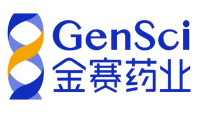-
FDA Fast Tracks Nurix Therapeutics, Inc’s Novel BTK Inhibitor for CLL, SLL
- Source: drugdu
- 120
- January 22, 2024
-
With manufacturing-related rejection, FDA turns its nose up at Satsuma’s migraine nasal spray
- Source: drugdu
- 105
- January 20, 2024
-
Gene-Edited Cell Therapy Casgevy Gains FDA Approval for Transfusion-Dependent Beta Thalassemia
- Source: drugdu
- 115
- January 19, 2024
-
Vertex’s CRISPR Gene Therapy Lands Another FDA Nod in a Rare Blood Disease
- Source: drugdu
- 213
- January 18, 2024
-
Takeda picks up 2nd FDA-approved indication for immune globulin treatment HyQvia
- Source: drugdu
- 154
- January 18, 2024
-
Vertex, CRISPR’s gene-editing therapy Casgevy wins early FDA nod to treat beta thalassemia
- Source: drugdu
- 101
- January 18, 2024
-
FDA Clears AnX Robotica’s NaviCam SB for Expanded Indications
- Source: drugdu
- 147
- January 17, 2024
-
FDA yet to find link between suicidal risk and GLP-1RA use
- Source: drugdu
- 159
- January 16, 2024
-
FDA’s early review finds no evidence linking Novo, Lilly weight-loss drugs to suicidal thoughts
- Source: drugdu
- 89
- January 16, 2024
your submission has already been received.
OK
Subscribe
Please enter a valid Email address!
Submit
The most relevant industry news & insight will be sent to you every two weeks.











